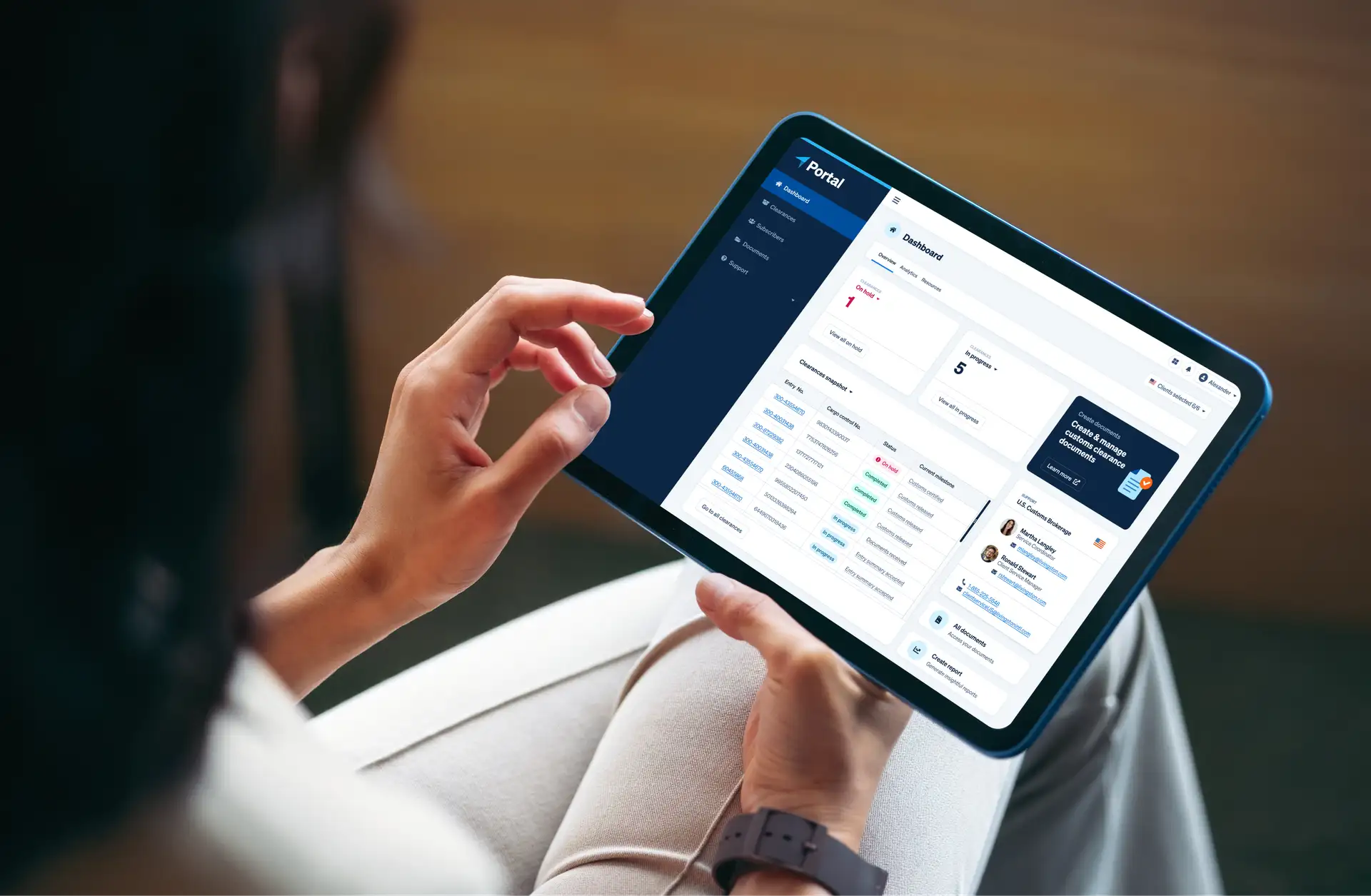
A customs broker that delivers.
Don’t worry about the details. We’ll take care of it all. The paperwork. The border clearance. The duties and taxes. We deliver so you excel.
More than a customs broker.
We make trade easier for businesses of every size. With technology and strategies that large companies demand. And a get-it-done service ethic that gives smaller operators peace of mind.
Customs Solutions
Flexible, tech-driven solutions for border management, compliance, and duty optimization.
Global Trade Management
Enterprise-level optimization of global compliance, supply chain, and cost control.
Global Forwarding
Flexible, reliable freight forwarding solutions connecting businesses to markets worldwide.
Vehicle Transportation
Secure, insured, door-to-door vehicle shipping across Canada or cross-border.
Frequent Shippers
You import and/or export regularly and need a reliable partner for Customs.
Enterprise Shippers
Your global trading and supply chain take significant time and resources.
Carriers
A full-service import and export infrastructure.
Imagine the efficiency of a trusted relationship that includes customs brokerage, deep compliance expertise, networked technologies, and global freight services. Linked. So it all just works.
We are with you.
With Livingston, you have an ally who can help you open the world. We are on the ground wherever you want to grow.
Don’t leave money at the border.
Duties and taxes hurt the balance sheet. With Livingston pinpointing your obligations and opportunities, your money is being protected.
Be ready for anything.
Make readiness routine. We handle the classifying, the deadlines, and the files. So you are always ready if Customs calls.
Our team is your team.
With Livingston, you can reach higher. Let our people
help yours get to the next level of trade effectiveness.

We know the ropes.
Livingston teams are loaded with experience. They know exactly what you need, when you need it.
We save you time.
Our systems are geared to help you. One-click to call. Live chat. Reps who have answers. Faster.
We empower your people.
Your people will succeed with the right tools and strategies. It’s our job to make sure they have them.

Power tools.
Livingston technology tracks your
progress in real-time. Monitor shipments.
Secure and share your files.
See your trends and run scenarios.
Know more.
Trade better.
Count on us to keep you informed. Useful guides. Instructive webinars. The latest advice and predictions from our senior people. Updated and free.

How can we help you?
Getting an online quote is easy. Simply tell us what you want, and a Livingston representative will be in contact to advise you on the most efficient way to accomplish your requirements.
We are available 24 hours, 7 days a week.
Customs Solutions
Flexible, tech-driven solutions for border management, compliance, and duty optimization.
Global Trade Management
Enterprise-level optimization of global compliance, supply chain, and cost control.
Global Forwarding
Flexible, reliable freight forwarding solutions connecting businesses to markets worldwide.
Vehicle Transportation
Secure, insured, door-to-door vehicle shipping across Canada or cross-border.